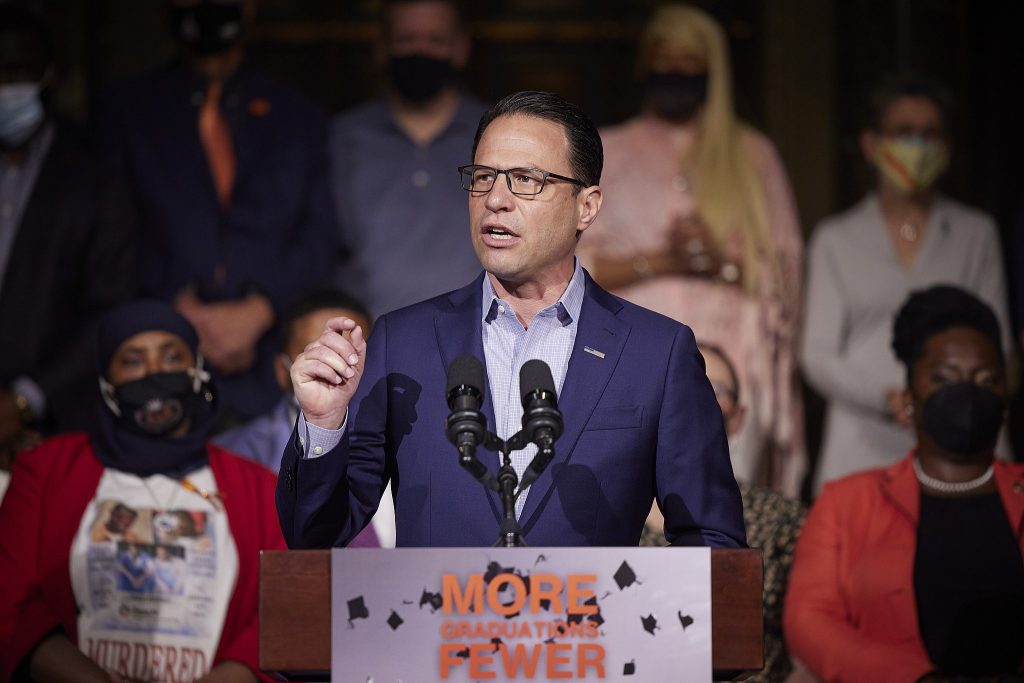By Kevin Mooney
Pennsylvania voters who played an instrumental role in bringing an overreaching executive to heel during the COVID-19 pandemic will have the opportunity to perform a similar service in the November elections.
Presumably, the same voting block that approved constitutional amendments last year limiting their governor’s emergency powers in response to business and school closures would also be inclined to restore checks and balances in other policymaking venues.
Since taking executive action to “combat climate change” in October 2019, Gov. Tom Wolf, a Democrat set to leave office in January, has sought to bypass the legislature while coercing Pennsylvania into joining the Regional Greenhouse Gas Initiative, a multistate climate change compact widely known as RGGI, which has significant tax and regulatory implications.
But because state lawmakers, in combination with industry and labor plaintiffs, made a persuasive case in court that Wolf’s regulatory proposals would result in new carbon taxes that should fall within the purview of the legislature, the clock is running out for the incumbent governor.
In July, Pennsylvania’s Commonwealth Court issued preliminary injunctions in two related cases that temporarily puts Wolf’s climate change regulations on ice until the matter can be further adjudicated. In their litigation against the state’s Department of Environmental Protection, the coal industry and the labor unions directly take on the constitutionality of executive actions that usurp the authority of General Assembly to levy taxes. The companion suit from state senators delves into more esoteric questions about the separation of powers.
But in each case, it is the concept of “No Taxation without Representation” that is finding renewed expression. So where does Josh Shapiro, the Democratic attorney general running for governor, stand on the use of unilateral, executive authority as it relates to climate change?
That’s a live question since the Pennsylvania Senate fell just one vote shy this year of the requisite two-thirds majority needed to override Wolf’s veto of a concurrent resolution from the full General Assembly that would prevent the commonwealth from joining the multi-state climate change compact. Three Senate Democrats joined with Republicans in the override attempt. In his veto message, Wolf argues that anti carbon regulations are needed to combat what he describes as “the global climate crisis.”
Clearly, Wolf places a greater premium on climate change activism than he does on constitutional government.
So far, Shapiro has been sending out mixed messages about his views on RGGI. While on the campaign trail, he tells union members working in industries vulnerable to carbon taxes what they want to hear. But his office of attorney general has approved the rule enabling Pennsylvania to join RGGI.
Moreover, environmental activist groups such as Natural Resources Defense Council and the Sierra Club that support Wolf’s climate change schemes have also endorsed Shapiro’s campaign.
…
Read the rest at The Daily Caller.
Originally published by The Daily Caller. Republished with permission. Content created by The Daily Caller News Foundation is available without charge to any eligible news publisher that can provide a large audience. For licensing opportunities of our original content, please contact licensing@dailycallernewsfoundation.org.
Kevin Mooney is a journalist and investigative reporter for the Commonwealth Foundation in Harrisburg, PA, and the Heritage Foundation in Washington, D.C.
To read more about carbon taxes, click here.
To read more about Pennsylvania policy, click here.
